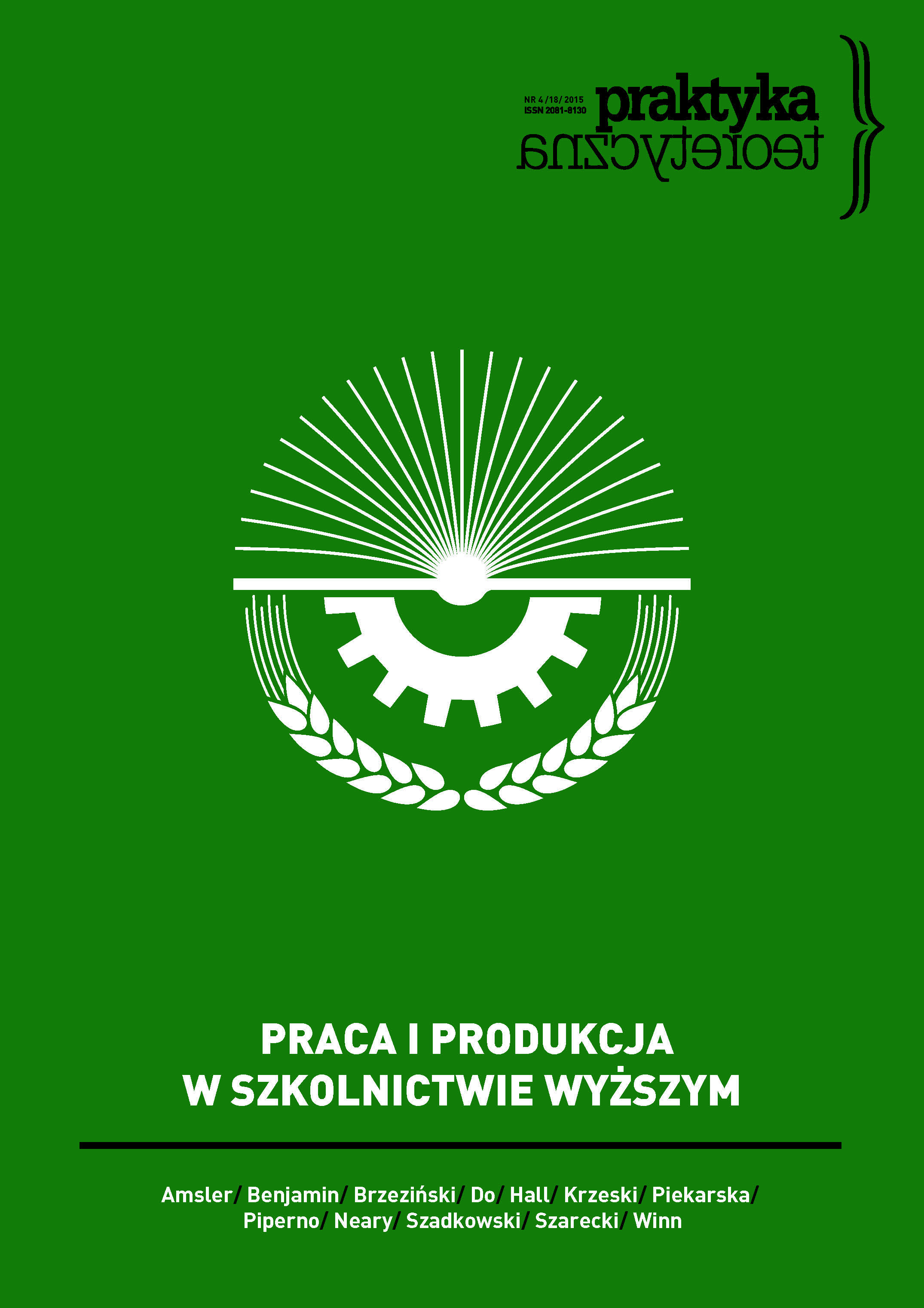Occupy: nowa pedagogika przestrzeni i czasu?
Occupy: New Pedagogy of Space and Time?
Author(s): Sarah Amsler, Mike NearyContributor(s): Jakub Krzeski (Translator), Krystian Szadkowski (Translator)
Subject(s): Political Philosophy, Marxism, Higher Education , Inclusive Education / Inclusion
Published by: Uniwersytet im. Adama Mickiewicza w Poznaniu
Keywords: Occupy; critical pedagogy; student as producer; Lefebvre
Summary/Abstract: This paper forms the first part of a project of inquiry to understand the theoretical and practical potentials of Occupy through the recent wave of occupations that have emerged in response to the politics of austerity and precarity around the world. We do this as educators who are seeking to ‘occupy’ spaces of higher education inside and outside of the institutions in which we work. Occupy points to the centrality of space and time as practical concepts through which it is possible to reconfigure revolutionary activity. By dealing with the concept (Occupy) at this fundamental level of space and time through a critical engagement with Henri Lefebvre’s notion of ‘a new pedagogy of space and time’, we hope to open spaces for further revolutionary transformation by extending a critique of the politics of space and time into the institutions and idea of education itself. Lefebvre considers the ‘pedagogy of space and time’ as a basis for a new form of ‘counter-space’. He suggests that ‘deviant or diverted spaces, though initially subordinate, show distinct evidence of a true productive capacity’ (2008: 383), and in doing so reveal the breaking points of everyday life and the ways in which it might be appropriated as exuberant spaces full of enjoyment and hope. In the Production of Space, he identifies the space of leisure as a site within which such a resistance might be contemplated and activated. In our work we replace the principle of leisure with the concept of Occupy. We consider here how attempts to occupy the university curriculum, not as a programme of education but as the production of critical knowledge, may also constitute ‘a new pedagogy of space and time’. We will describe this occupation of higher education with reference to two projects with which we are involved Student as Producer and the Social Science Centre, the former at the University of Lincoln, and the latter across the city of Lincoln.
Journal: Praktyka teoretyczna
- Issue Year: 2015
- Issue No: 18
- Page Range: 145-170
- Page Count: 26
- Language: Polish

